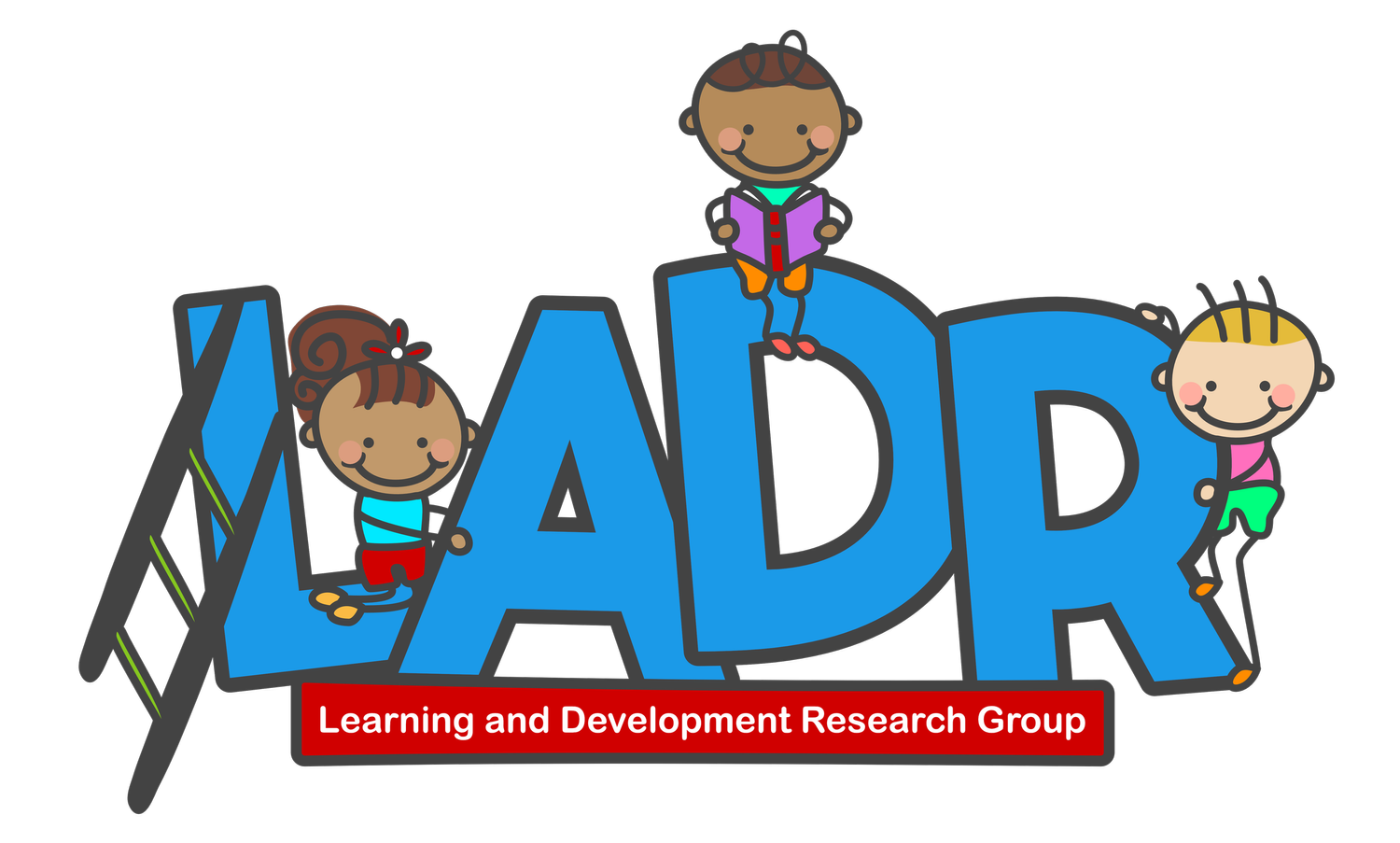Please note that the PDFs are made available to facilitate the prompt sharing of this content and are meant for personal and non-commercial purposes. The ownership of copyright rests with the designated copyright owners, as indicated in each paper.
* Denotes graduate mentee authors
+ Denotes undergraduate mentee authors
^Finch, J. E., ^*Starr, E.J., *Akhavein, K., & Hatton, H. (2025). “Washing our hands is a superpower”: Parent-child conversations about COVID-19 are longitudinally associated with children’s social-emotional adjustment and their conceptualizations of the pandemic. Developmental Psychology. https://doi-org/10.1037/dev0001928 ^ Denotes equal contribution, with authors listed alphabetically. PDF
+Johnson, R. & Finch, J. E. (2025). Academic achievement and engagement during the transition to middle childhood: Comparisons by learning disability status. Learning Disability Quarterly, 48(1), 37–50. https://doi.org/10.1177/07319487241288222 PDF
Pre-registration: https://osf.io/f7ksn/?view_only=fe12102ff0814c6cb90c66b2725f15b2
Finch, J. E., Garcia, E. B., & Obradović, J. (2024). Back to school: Teachers’ initial perceptions of students’ executive function behaviors are important for teacher-student relationships and executive function development. Applied Developmental Science, 1–21. https://doi.org/10.1080/10888691.2024.2418090 PDF
*Akhavein, K., Clark, C. A. C., Nelson, J. M., Espy, K. A. & Finch, J. E. (2024). Children’s arithmetic strategy use: The predictive roles of executive functions and socio-demographic characteristics. Journal of Experimental Child Psychology, 249, 106109. https://doi.org/10.1016/j.jecp.2024.106109 PDF
Votruba, A. M. & Finch, J. E. (2024). Trends and considerations in teaching introductory quantitative coursework in psychology graduate programs. Scholarship of Teaching and Learning in Psychology. https://dx.doi.org/10.1037/stl0000399 PDF
*Akhavein, K., Clark, C. A. C., Nelson, J. M., Espy, K. A., & Finch, J. E. (2023). The longitudinal contributions of preschool executive functions and early math abilities to arithmetic skills in elementary school. Cognitive Development, 68, 101388. https://doi.org/10.1016/j.cogdev.2023.101388 PDF
^Finch, J. E., ^*Saavedra, A., & Obradović, J. (2024). Academic motivation and self-regulated classroom behaviors in middle childhood: Moderation by parental education. Journal of Child and Family Studies, 33(5), 1451-1465. PDF ^ These authors contributed equally to this work.
Finch, J. E., *Akhavein, K., Patwardhan, I., & Clark, C. A. C. (2023). Teachers’ self-efficacy and perceptions of school climate are uniquely associated with students’ externalizing and internalizing behavior problems. Journal of Applied Developmental Psychology, 85, 101512. https://doi.org/10.1016/j.appdev.2023.101512 PDF
Pre-registration: https://osf.io/9d8p2/?view_only=2109b65568494aff9ce7904d1907cad0
Finch, J. E., Wolf, S., & Lichand, G. (2022) Executive functions and motivation uniquely predict children’s academic development in Côte d’Ivoire. Developmental Psychology, 58(12), 2287-2301. PDF
Pre-registration: https://osf.io/y9emz/?view_only=5656570cce1b4c27896f01807612ee36
Obradović, J., Finch, J. E., Connolly, C., Siyal, S., & Yousafzai, A. (2022) The unique relevance of executive functions and self-regulation behaviors for understanding early childhood experiences and preschoolers’ outcomes in rural Pakistan. Developmental Science, 25(6), e13271. https://doi.org/10.1111/desc.13271 PDF
Latham, S., Finch, J. E., Reardon, S., & Waldfogel, J. (2021) Increases in income-based disparities in early elementary school obesity, 1998 to 2014. Academic Pediatrics, 21(2), 304-311. https://doi.org/10.1016/j.acap.2020.11.021 PDF
Sulik, M. J., Finch, J. E., & Obradović, J. (2020). Moving beyond executive functions: Challenge Preference as a predictor of academic achievement in elementary school. Journal of Experimental Child Psychology, 198. https://doi.org/10.1016/j.jecp.2020.104883 PDF
*Armstrong-Carter, E., Finch, J. E., Siyal, S., Yousafzai, A., & Obradović, J. (2020). Biological sensitivity to context in Pakistani preschoolers: Hair cortisol and family wealth interactively predict girls’ cognitive skills. Developmental Psychobiology, 62(8), 1046-1061. https://doi.org/10.1002/dev.21981 PDF
Finch, J. E. (2019). Do schools promote executive functions? Differential working memory growth across the school-year and summer months. AERA Open, 5(2), 1-14. https://doi.org/10.1177/2332858419848443 PDF
Finch, J. E., Garcia, E. B., Sulik, M. J., & Obradović, J. (2019). Peers matter: Links between classmates’ and individual students’ executive functions in elementary school. AERA Open, 5(1), 1-14. https://doi.org/10.1177/2332858419829438 PDF
Johnson, A.D., Finch, J. E., & Phillips, D. A. (2019). Associations between child care experiences and kindergarten readiness in a low-income sample: Moderation by child temperament. Developmental Psychology, 55(3), 623-636. https://doi.org/10.1037/dev0000651 PDF
Obradović, J., Finch, J. E., Portilla, X., Rasheed, M., Tirado-Strayer, N., & Yousafzai, A. (2019). Early executive functioning in a global context: Developmental continuity and family protective factors. Developmental Science, 22(5), e12795. https://doi.org/10.1111/desc.12795 PDF
Finch, J. E., Yousafzai, A., Rasheed, M., & Obradović, J. (2018). Measuring and understanding social-emotional behaviors in preschoolers from rural Pakistan. PLOS ONE, 13(11). https://doi.org/10.1371/journal.pone.0207807 PDF
Obradović, J., Sulik, M., Finch, J. E., & Tirado-Strayer, N. (2018). Assessing students’ executive functions in the classroom: Validating a scalable group-based procedure. Journal of Applied Developmental Psychology, 55, 3-14. https://doi.org/10.1016/j.appdev.2017.03.003 PDF
Finch, J. E., & Obradović, J. (2017). Unique effects of socioeconomic and emotional parental challenges on children’s executive functions. Journal of Applied Developmental Psychology, 52, 126-137. https://doi.org/10.1016/j.appdev.2017.07.004 PDF
Finch, J. E., & Obradović, J. (2017). Independent and compensatory contributions of executive functions and challenge preference for students’ adaptive classroom behaviors. Learning and Individual Differences, 55, 183-192. https://doi.org/10.1016/j.lindif.2017.03.002 PDF
Brown, N., Finch, J. E., Obradović, J., & Yousafzai, A. (2017). Maternal care mediates the effects of nutrition and responsive stimulation interventions on young children’s growth. Child: Care, Health, and Development, 43(4), 577-587. https://doi.org/10.1111/cch.12466 PDF
Obradović, J., & Finch, J. E. (2017). Linking executive function skills and physiological challenge response: Piecewise latent growth curve modeling. Developmental Science. https://doi.org/10.1111/desc.12476 PDF
Obradović, J., Yousafzai, A., Finch, J. E., & Rasheed, M. (2016). Maternal scaffolding and home stimulation: Key mediators of early intervention effects on children’s cognitive development. Developmental Psychology, 52(9), 1409-1421. https://doi.org/10.1037/dev0000182 PDF
Bassok, D., Finch, J. E., Lee, R. H, Reardon, S. F., & Waldfogel, J. (2016). Socioeconomic gaps in early childhood experiences, 1998 to 2010. AERA Open, 2(3), 1-22. https://doi.org/10.1177/2332858416653924 PDF
Finch, J. E., Johnson, A. D., & Phillips, D. A. (2015). Is sensitive caregiving in child care associated with children’s early effortful control skills? An exploration of linear and threshold effects. Early Childhood Research Quarterly, 31(2), 125-134. https://doi.org/10.1016/j.ecresq.2014.12.007 PDF
